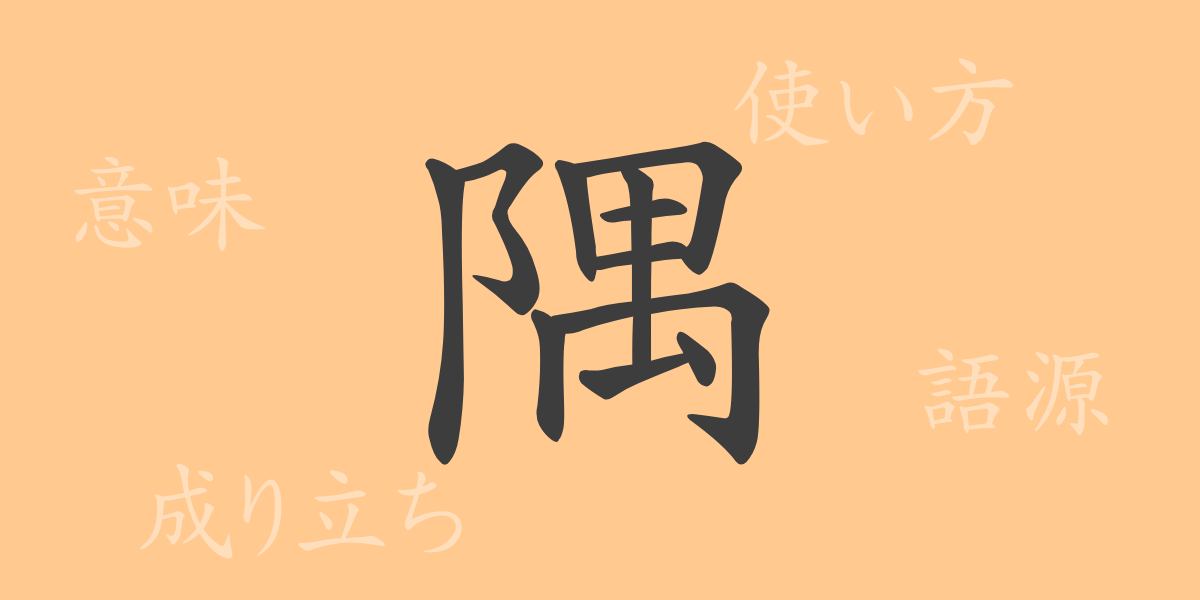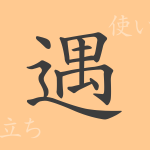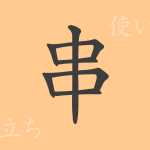In Japanese culture and language, there is a wealth of expressive power. Each of the commonly used kanji carries deep meaning and history, closely tied to our daily lives. The kanji “隅(すみ)” may often be overlooked, but it plays a crucial role in the Japanese language. This time, we will delve into its charm and secrets.
Origin of 隅(すみ) (Etymology)
To explore the origin of the kanji “隅(すみ),” we need to focus on its etymology. In ancient China, “隅(すみ)” was formed by combining “阜(ふ)” meaning wall and earth, and “厶(し)” meaning corner. This visually represents a corner of a wall built on the ground, thus illustrating “隅(すみ).”
Meaning and Usage of 隅(すみ)
The kanji “隅(すみ)” means “corner,” “edge,” or “end.” Generally, it refers to the edge or corner of an object, the farthest part of a room or land. It can also be used metaphorically to mean an “unnoticed place” or “a spot that doesn’t stand out.”
Readings, Stroke Count, and Radical of 隅(すみ)
The basic information regarding the kanji “隅(すみ)” is as follows:
- Readings: On’yomi (Chinese reading) – グウ(ぐう); Kun’yomi (Japanese reading) – すみ (sumi)
- Stroke count: 12 strokes
- Radical: 阜(おかへん) (hill radical)
Idioms, Phrases, and Proverbs Using 隅(すみ)
There are various idioms, phrases, and proverbs that include “隅(すみ),” such as:
- 隅田川(すみだがわ) – Sumida River in Tokyo.
- 隅に置けない(すみにおけない) – Not to be underestimated; someone who needs to be taken seriously.
- 隅に置く(すみにおく) – To neglect or ignore something.
- 隅から隅まで(すみからすみまで) – Everywhere, from corner to corner.
These expressions highlight the richness of the Japanese language and reflect the meticulous observation and attention to detail of the Japanese people.
Conclusion on 隅(すみ)
The kanji “隅(すみ)” evokes the idea of corners and edges, carrying unique expressions and meanings in Japanese. Although it might not be prominent in daily life, the presence of “隅(すみ)” in our language is indispensable for communication. We hope this article helps you appreciate the diverse charm of “隅(すみ).”

























